SuperyachtNews COVID-19 Advisory – sanitising on board
A Q&A with Ecoworks Marine Co-founder Angus Johnston about considerations for surface sanitising…
In light of the COVID-19 pandemic, surface sanitising has become a vital part of safely opening up any venue to the public. In the superyacht industry – where the health and safety of owners, guests and crew is the priority – surface sanitising is a key component of the on-board measures being implemented and allowing the safe and successful resumption of normal operations.
But what, where and how to disinfect are some of the key considerations for crew when choosing the right disinfection technology. In the following, Ecoworks Marine Co-Founder Angus Johnston answers some questions about the important factors crew should consider when looking at surface sanitising in terms of effectiveness, environmental impact and health and safety.
Must a sanitiser contain alcohol in order to be effective?
No, alcohol is not required in sanitiser. There are many ways of effective sanitisation: alcohol is one and high levels of sodium chloride is another. But, this is very harmful to both the environment and the user. Some natural sanitisers utilise organic acid, which performs in terms of sanitisation to regulatory standards, longevity of effect and safety of use. It can also outperform in terms of sanitisation: a surface will stay sanitised for longer and it's safe for the user and healthier to the environment. Alcohol will evaporate quickly and it is also flammable, which is not ideal for engine rooms or galleys.
What are the regulatory standards?
You need to be looking for a sanitiser that has been tested and approved to EN14476 and EN1276:
- EN14476 against enveloped viruses for Coronavirus (e.g. SARS, MERS, COV-19), Poxviridae, Herpesviridae, Filoviridae (e.g. Ebola, Marburg), Flavivirus, Hepatitis C Virus (HCV), Hepatitis Delta Virus (HDV), Influenza Virus, Paramyxoviridae, Rubella Virus, Measles Virus, Rabies Virus, HIV, Human T Cell LeukemiaVirus (HTLV), Hepatitis B virus (HBV);
- EN1276 for Pseudomonasaeruginosa, E coli, Staphylococcus aureus and E hirae.
You can also go a bit further and look for a sanitiser that has been tested and approved to:
- EN13697 for E coli, E hirae, Salmonella typhimurium, M RSA, Pseudomonasaeruginosa, Staphylococcus aureus, Listeria monocytogenes, Campylobacter jejuni, VRE, B cinerea, F oxysporum;
- EN13623 for Legionella pneumophila;
- EN1650 for B cinereal.
Do crew need to worry about what sanitiser to use on sensitive surfaces?
Yes, most ordinary sanitisers use quaternary ammonium chloride (quat)-based technology that puts them very high in alkaline and can be as high as a pH10-13. Bear in mind bleach is around pH13. If you are unsure, any product on the market must by law provide an MSD (Material Safety Data Sheet), which should be found online, but if not, one must be provided when requested.
Can sanitisers be dangerous to the health of the applicator or to guests?
Typical hazard warnings on quat-based technologies include skin irritation, eye damage, very toxic to aquatic life with long-term effects and carcinogenic. Whereas, for bleach and hydrogen peroxide, we see warnings such as causing serious skin burns and eye irritation. So, the answer is really, yes, there can be some side effects. A study in 2018 showed that bleach-based cleaning products can be as damaging to the lungs as smoking a pack of cigarettes every day.
Look for products that use naturally-derived ingredients such as organic acids and plant extracts to boost their effectiveness to be approved to BS EN standards as defined by the European Chemicals Agency.
How often should surfaces be sanitised while guests are on board?
The regularity of cleaning and disinfecting depends on your particular situation and what’s evolving around you. Every charter will be different, whether the guests are going ashore or just staying on board for an entire week whilst at anchor. It’s important to stay on top of common touch points such as handrails, door handles etc., and to come up with a routine that all crew are aware of and keep on top of. Clean regularly and disinfect daily, if not twice daily, depending on the movements of the crew and guests.
Is sanitising ‘food safe’ and what is meant by this?
Food Safe Sanitiser is a food-safe disinfectant that passes Disinfectant Suspension Testing Based on EN 1276:2009. Effective against E. Coli, Pseudomonas Aeruginosa, Staphylococcus Aureus and Enterococcus Hirae with a contact time of 30 seconds. So, basically, a food safe sanitiser is safe to use on food preparation areas and should be effective against common harmful bacteria.
Do crew need to be fogging the boat?
Fogging is the term used to disinfect a space using a fogging machine to create what looks like fog in a room. Fogging is an effective way of disinfecting an area although, generally, fogging should be viewed as an additional measure that is used following successful cleaning and disinfection practices. It should not be considered as a replacement for general cleaning and disinfection practices.
Profile links
Ecoworks Marine Preserve The Living Seas Ltd
NEW: Sign up for SuperyachtNewsweek!
Get the latest weekly news, in-depth reports, intelligence, and strategic insights, delivered directly from The Superyacht Group's editors and market analysts.
Stay at the forefront of the superyacht industry with SuperyachtNewsweek
Click here to become part of The Superyacht Group community, and join us in our mission to make this industry accessible to all, and prosperous for the long-term. We are offering access to the superyacht industry’s most comprehensive and longstanding archive of business-critical information, as well as a comprehensive, real-time superyacht fleet database, for just £10 per month, because we are One Industry with One Mission. Sign up here.
Related news
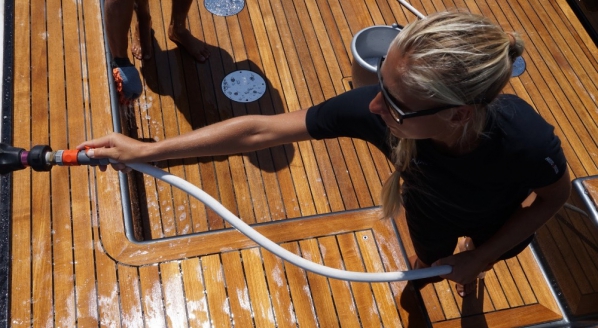
Cleaning products affect crew, not just the planet
Ecoworks Marine's Fraser Johnston explains how ingredients in regular cleaning products are harmful to crew
Crew
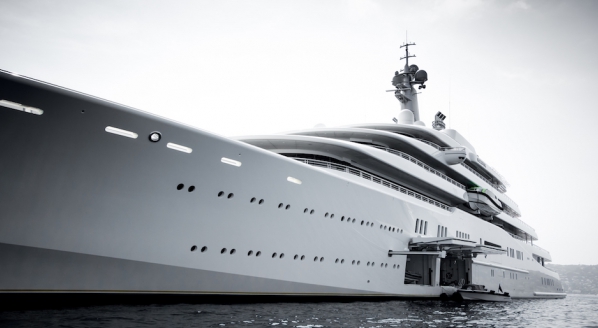
GYG provides performance update
SuperyachtNews speaks with Remy Millott about the group's 2019 financial performance and its on-going strategies
Business
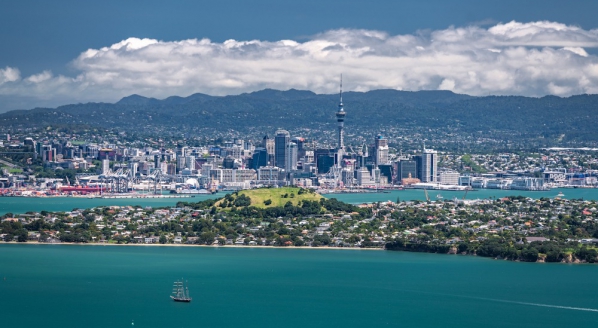
Will COVID-19 impact superyacht attendance for the America’s Cup?
In the wake of the pandemic, some yachts have reportedly cancelled plans to visit New Zealand for the 2021 event
Business
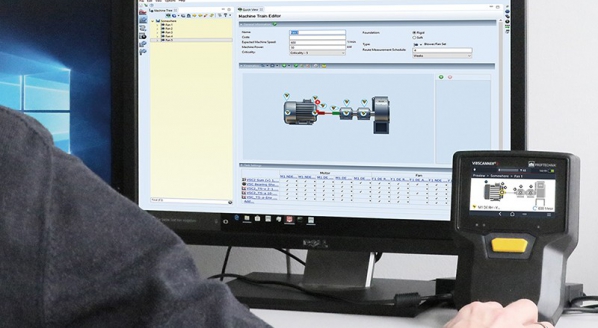
Increasing demand for condition monitoring systems during COVID-19
How the industry is mitigating the health risks of in-person vessel examinations
Technology
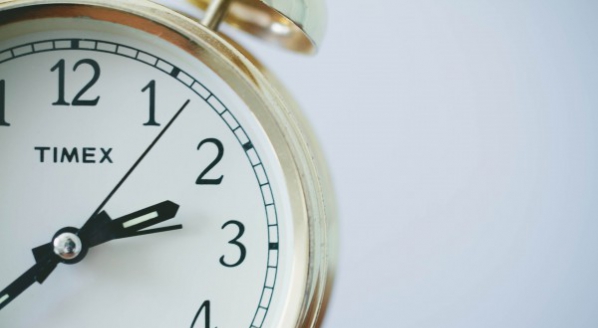
COVID-19 impacts crew working hours
Data provided by workrest confirms that crew have worked less hours over the course of the pandemic
Crew
Related news
GYG provides performance update
6 years ago
COVID-19 impacts crew working hours
6 years ago
NEW: Sign up for
SuperyachtNewsweek!
Get the latest weekly news, in-depth reports, intelligence, and strategic insights, delivered directly from The Superyacht Group's editors and market analysts.
Stay at the forefront of the superyacht industry with SuperyachtNewsweek




